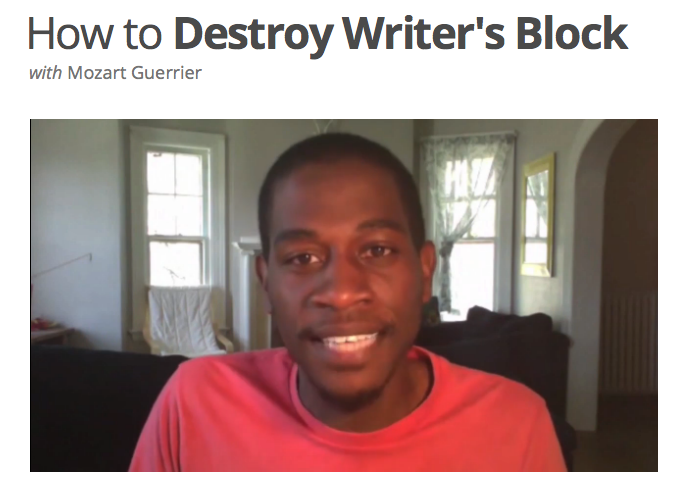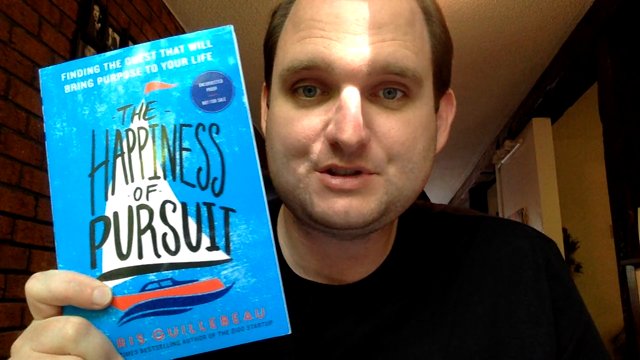Whether you're a writer or not, we have all felt a lack of creativity or inability to focus and get something done. As a writer, I know there are times when I feel inspired and writing comes easily. I can write pages in what feels like no time at all. Other times I can spend 30 minutes and only get a sentence or two. It's crazy!
This weekend I watched a 30 minute class by Mozart Guerrier called How to Destroy Writer's Block and it was fantastic!
Mozart is a good friend (you may remember him from his awesome Everyday Humanitarians interview this summer) and I think the advice he shares is amazing.
Here are his 10 Big Ideas briefly, including many I hadn't thought of before:
- Inner Writers’ Script - we all have voices in our head, rewrite your script and make it positive
- Accept the Help - before you take in more information (books, blog posts, etc) act on the help you've already received
- You Deserve a Three Minute Experiment - write for 3 minutes at a time, that's all - just get started
- Community = Life - all great writers don't just do it alone, they have communities of support - find yours
- Going Deeper with Quality Music + Books - you get out what you put in - find work you adore and consume it again and again
- Embracing Distraction - don't be ashamed, leverage what you love and make it into something great
- The *Body* is Bigger than the Brain - start with breathing (4 seconds in, 6 seconds out), talk a walk, take care of yourself
- Speak It Out, Yo - ever had talker's block? Of course not. Write how you talk, record yourself - it works wonders.
- Chunking and God’s Business - focus on the why, not the what
- 3 Magic Questions - Ask these questions to characters in your story: Have you ever been accused of something you didn't do? Do you know the circumstances of your birth? Have you ever almost died?
Thanks for teaching a great class Mozart, I look forward to seeing what you come up with next!
To learn more, check out Mozart's class.
Here's to ending writer's block!
****


 I'm very happy to say that I received an advanced copy of Chris Guillebeau's book,
I'm very happy to say that I received an advanced copy of Chris Guillebeau's book, 